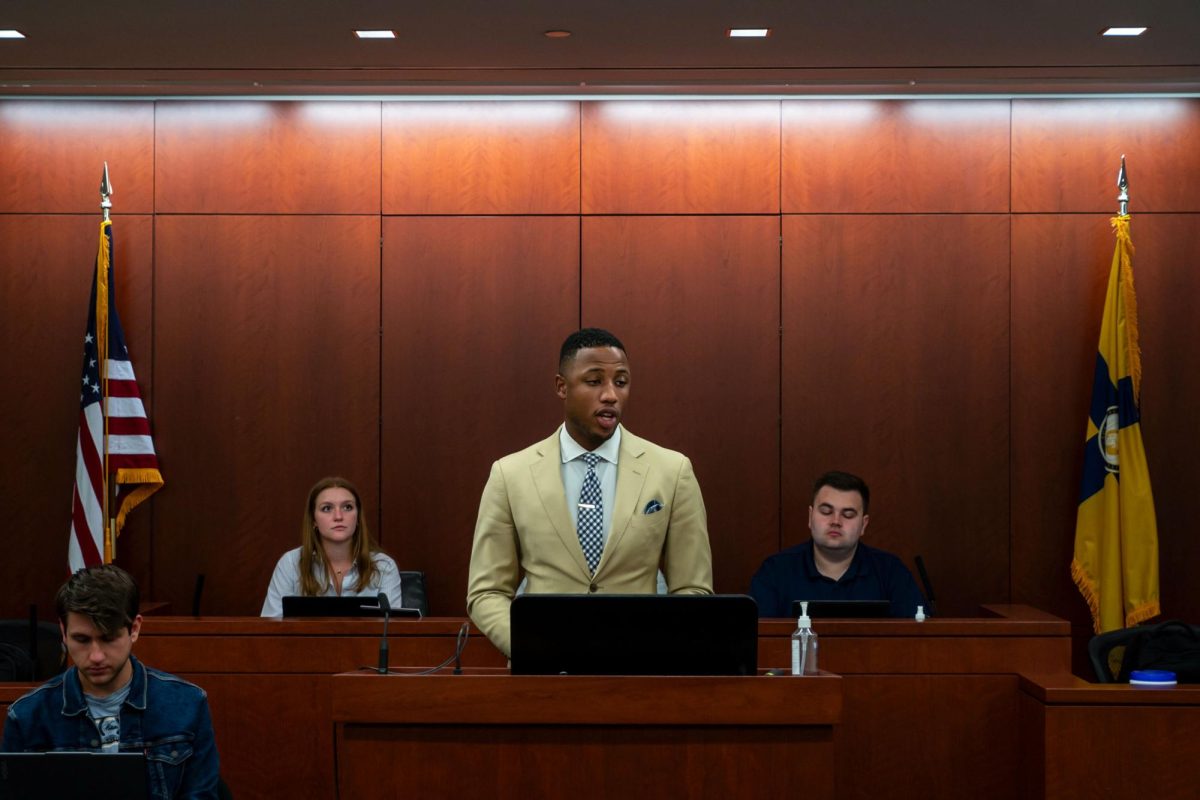The Student Bar Association Senate requested Tuesday that the SBA Supreme Court provide an opinion on a constitutional issue about the eligibility of a second-year transfer evening student running for the senate.
The senate unanimously passed a resolution that requests the court provide an advisory opinion on whether the second-year evening transfer student can run for the second-year transfer senator seat. SBA bylaws state that the transfer student must have the same expected graduation year as the respective transfer class seat, which made senators unaware if the student could run because the second-year evening student will graduate a year later than the second-year, full-time student class.
SBA Sen. Yolanda Heman-Ackah said she believes there should be a seat for the second-year evening students because they would otherwise not be represented. She said every student needs to be represented by a senator and proposed creating seats for each grade level of evening students.
SBA President Shallum Atkinson said he believes that creating new positions in the middle of the election will create “more problems” because they are not considering the people who wanted to run from the beginning but couldn’t because there wasn’t a seat available to them. He proposed that future senators turn transfer seats to transfer-at-large to eradicate the problem, as a transfer evening student would be able to fill the transfer-at-large seat.
“Changing those seats to transfer at-large and editing the constitution to reflect that would solve a lot more problems than creating three more positions that will likely go unfilled the majority of the time,” Atkinson said.
The senate also unanimously appointed Lily Brickman, Spencer Banwart, Zack Minsk and Jasmine Williams to the Faculty Appointment Committee, who will represent student interests in the hiring process of new faculty members.
The SBA’s Vice President of Finance, Spencer Sandusky, said he and Atkinson are working with the GW Law Associate Dean of Students Jason Belk to reform the funding process for clubs, including changing how they keep track of club funds because the current system isn’t working for the majority of student organizations.
“As we transitions from year to year, it doesn’t end up working very well,” Sandusky said.











